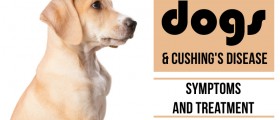
Many dogs in the U.S. are sometimes suffering from a condition of the upper respiratory inflammation called kennel cough, Bordetella, Bordetellosis, canine infectious tracheobronchitis or tracheobronchitis. This is highly contagious disease for dogs, and it can be found worldwide.
Causes of kennel cough
There are many different agents in the environment that can cause kennel cough; most common of them are mycoplasma, parainfluenza virus and Bordetella bronchiseptica. Other possible causes of kennel cough may also be canine herpes virus, and canine adenovirus type 2. Although each one of theses micro organisms can cause the infection, most commonly it is a combination of several of them.
Virus that most often attacks dogs, and cause kennel cough is parainfluenza virus, and it usually produces mild symptoms like which lasts up to six days, if no other bacteria gets involved. There is a vaccine called 5 ways that can prevent the infection form this virus.
Most common bacteria that causes kennel cough is Bordetella bronchiseptica, and first symptoms of illness occurs after 2 to 14 days of exposure, and if not contaminated with other agents, symptoms usually lasts up to ten days. Diseased dog will stay contagious even after the illness is gone for about 6 to 14 weeks, so you should keep him isolated from other animals.
Symptoms of kennel cough
Most common symptoms in dog with kennel cough are retching and dry hacking cough, accompanied with watery nasal discharge. In mild cases of kennel cough dogs remain active and keeps eating normally. In more severs cases, dogs develops fever, lethargy, pneumonia and loss of appetite.
Diagnosis of kennel cough
Procedure of diagnose for dogs that are suspected of having a kennel cough is based on recent exposure to other dogs and the symptoms that dog have. Various tests are performed like blood test and viral and bacterial analyzes.
Treatment of kennel cough
Although in some cases of kennel cough medicaments are prescribed, usually veterinarians just let the illness to pass on naturally, which often happens in one to three weeks. There are some homeopathic remedies that may help like Colloidal silver, which is a natural anti biotic. Usually it takes a few drops in a dog’s bowl of water, per day.
Another homeopathic remedy that can help is drops of Eucalyptus, which are also mix with drinking water for a dog. Echinacea stimulates immune system of the animal thus significantly speeding the recovery.

















Your thoughts on this
Loading...